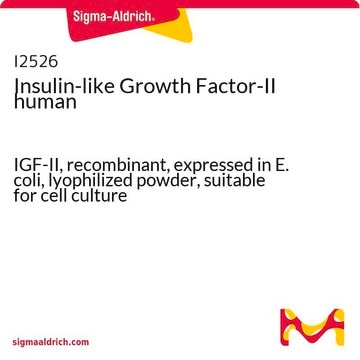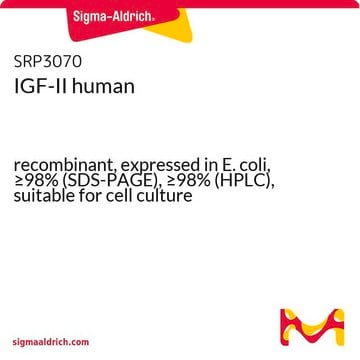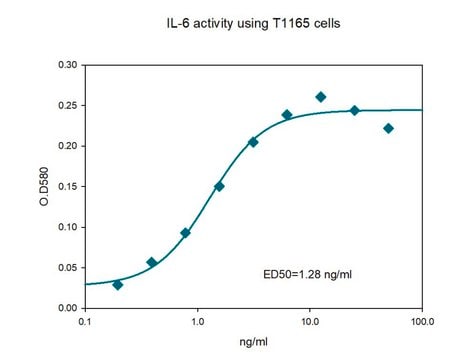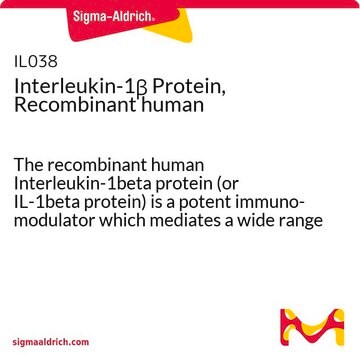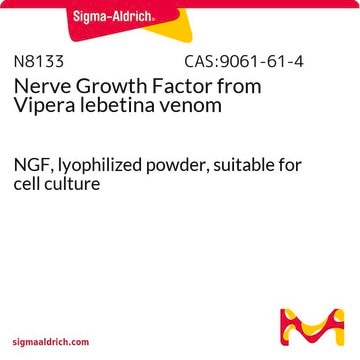Fontos dokumentumok
I7276
Anti-Insulin-Like Growth Factor-II antibody produced in goat
affinity isolated antibody, lyophilized powder
Szinonimák:
Anti-IGF-II
About This Item
Neutral
WB
neutralization: 0.2-0.8 μg/mL
western blot: suitable
Javasolt termékek
biológiai forrás
goat
Minőségi szint
konjugátum
unconjugated
antitest forma
affinity isolated antibody
antitest terméktípus
primary antibodies
klón
polyclonal
Forma
lyophilized powder
faj reaktivitás
human
technika/technikák
immunohistochemistry (formalin-fixed, paraffin-embedded sections): 5-15 μg/mL using human Placenta
neutralization: 0.2-0.8 μg/mL
western blot: suitable
UniProt elérési szám
tárolási hőmérséklet
−20°C
célzott transzláció utáni módosítás
unmodified
Géninformáció
human ... IGF2(3481)
Általános leírás
Anti-IGF-II recognizes human insulin-like growth factor II. It does not react with human IGF-I.
Egyediség
Immunogén
Alkalmazás
Fizikai forma
Jogi nyilatkozat
Nem találja a megfelelő terméket?
Próbálja ki a Termékválasztó eszköz. eszközt
kapcsolódó termék
Tárolási osztály kódja
11 - Combustible Solids
WGK
WGK 1
Lobbanási pont (F)
Not applicable
Lobbanási pont (C)
Not applicable
Egyéni védőeszköz
Eyeshields, Gloves, type N95 (US)
Válasszon a legfrissebb verziók közül:
Már rendelkezik ezzel a termékkel?
Az Ön által nemrégiben megvásárolt termékekre vonatkozó dokumentumokat a Dokumentumtárban találja.
Tudóscsoportunk valamennyi kutatási területen rendelkezik tapasztalattal, beleértve az élettudományt, az anyagtudományt, a kémiai szintézist, a kromatográfiát, az analitikát és még sok más területet.
Lépjen kapcsolatba a szaktanácsadással